Are Gobe Nd Filters Any Good ?
Yes, ND filters are commonly used in photography and videography to reduce the amount of light entering the lens without affecting the color or quality of the image. They are particularly useful in situations where you want to use a wider aperture or slower shutter speed in bright lighting conditions. ND filters can help achieve a more balanced exposure, prevent overexposure, and allow for creative effects such as motion blur or long-exposure photography. The quality of ND filters can vary depending on the brand and price range, so it's important to choose a reputable brand to ensure good optical performance and minimal color cast.
1、 Definition and Purpose of ND Filters in Photography
Definition and Purpose of ND Filters in Photography
ND filters, also known as neutral density filters, are essential tools for photographers looking to control the amount of light entering their camera lens. These filters are designed to evenly reduce the intensity of all wavelengths of light, without affecting the color balance. They achieve this by darkening the entire image, allowing photographers to achieve creative effects and overcome exposure challenges.
The primary purpose of ND filters is to extend the exposure time, particularly in situations where there is too much light. By reducing the amount of light entering the lens, ND filters enable photographers to use slower shutter speeds, resulting in motion blur or smooth water effects. This is particularly useful in landscape photography, where capturing long exposures can create stunning images with silky waterfalls or streaking clouds.
Additionally, ND filters are beneficial in situations where photographers want to use wider apertures for shallow depth of field, but the lighting conditions are too bright. By reducing the amount of light, ND filters allow photographers to achieve the desired depth of field without overexposing the image.
As for the question of whether gobe ND filters are any good, it is important to note that the quality of ND filters can vary depending on the brand and price range. Gobe is a reputable brand known for producing high-quality filters at an affordable price point. Their filters are made with premium materials and feature multi-coating to minimize reflections and maintain image clarity.
However, it is always recommended to do thorough research and read reviews before purchasing any photography equipment. The latest point of view on gobe ND filters suggests that they offer good value for money and perform well in various shooting conditions. Ultimately, the choice of ND filters depends on individual preferences, budget, and specific photography needs.
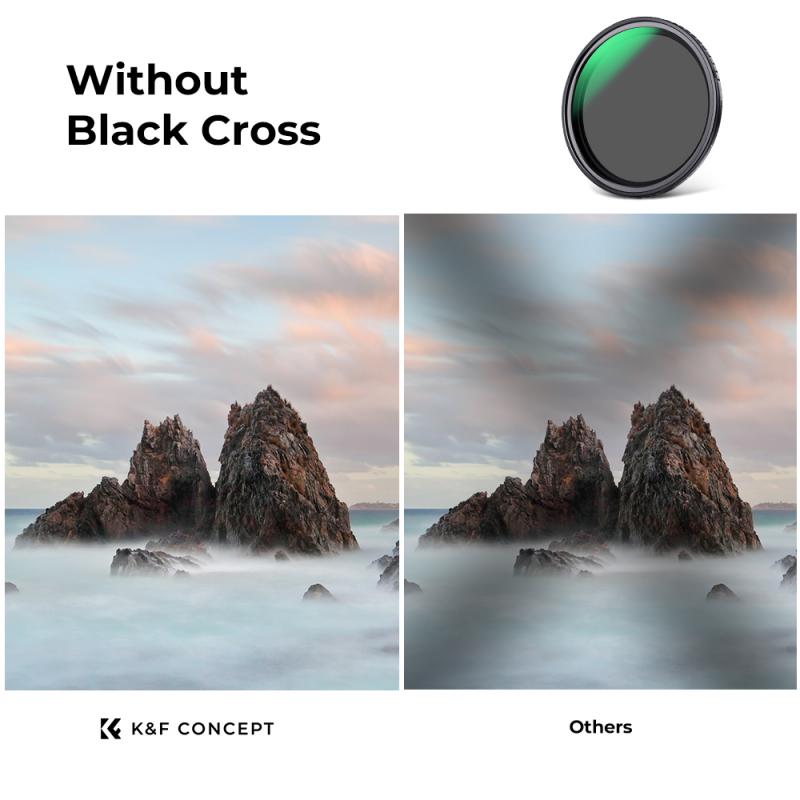
2、 Types of ND Filters and Their Features
Types of ND Filters and Their Features
ND (Neutral Density) filters are essential tools for photographers and videographers, allowing them to control the amount of light entering the camera without affecting the color or quality of the image. There are various types of ND filters available in the market, each with its own features and benefits.
1. Screw-on ND Filters: These filters are attached directly to the front of the lens and are available in different densities, such as ND2, ND4, ND8, etc. They are easy to use and provide a convenient solution for reducing light in bright conditions. However, they can be limited in terms of the amount of light they can block.
2. Square/Rectangular ND Filters: These filters are larger in size and are placed in a filter holder that attaches to the lens. They offer more flexibility as they can be stacked together to achieve higher densities. Additionally, they allow for the use of graduated ND filters, which are useful for balancing exposure in scenes with a significant difference in brightness between the sky and the foreground.
3. Variable ND Filters: These filters offer adjustable density, allowing photographers to control the amount of light reduction by rotating the filter. They are convenient for situations where the lighting conditions change frequently, such as during outdoor shoots. However, some variable ND filters may introduce color casts or reduce image sharpness, so it is important to choose a high-quality filter.
As for the specific brand "Gobe," it is important to consider user reviews and expert opinions to determine their quality and performance. While Gobe ND filters have generally received positive feedback for their affordability and decent image quality, it is always recommended to do thorough research and compare them with other reputable brands before making a purchase.
In conclusion, ND filters are essential tools for photographers and videographers, and the choice of the right filter depends on individual needs and preferences. It is important to consider factors such as filter type, density, and quality to ensure optimal performance and image quality.
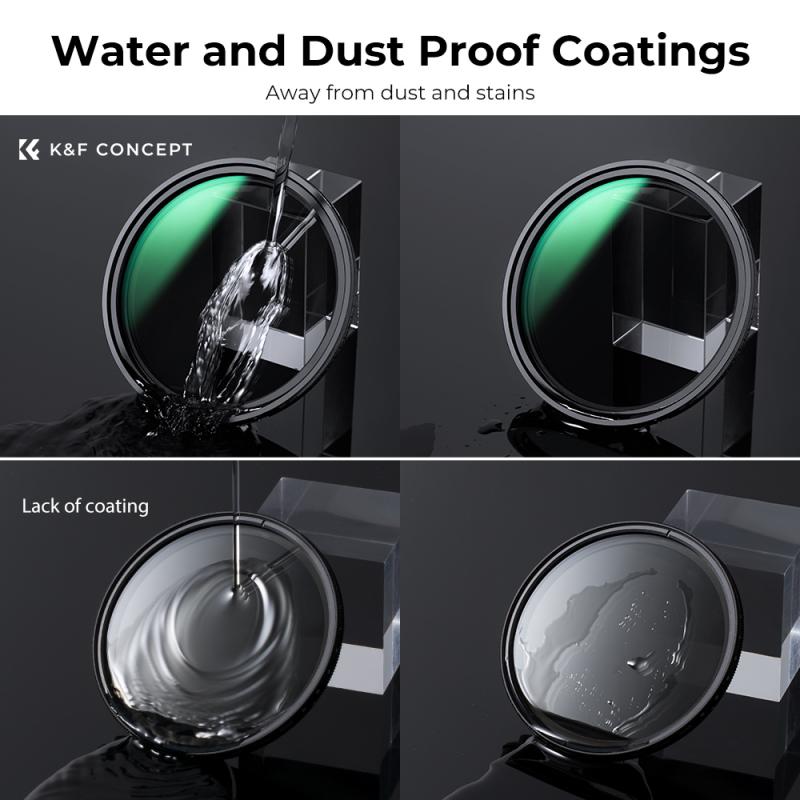
3、 Advantages and Disadvantages of Using ND Filters
Advantages and Disadvantages of Using ND Filters
ND (Neutral Density) filters are a popular accessory among photographers and videographers. These filters are designed to reduce the amount of light entering the camera, allowing for longer exposures or wider apertures in bright conditions. While ND filters can be beneficial in certain situations, they also have their limitations. Here are some advantages and disadvantages of using ND filters:
Advantages:
1. Exposure control: ND filters provide precise control over exposure, allowing photographers to achieve the desired shutter speed or aperture in bright lighting conditions. This is particularly useful for landscape photography or capturing motion blur in waterfalls or moving subjects.
2. Creative effects: By using longer exposures with ND filters, photographers can create stunning effects such as silky smooth water or streaking clouds. These filters also enable videographers to achieve a cinematic look by using wider apertures in bright scenes.
3. Versatility: ND filters come in various strengths, from light to heavy, providing flexibility in different lighting conditions. They can be stacked or combined with other filters to achieve specific effects or overcome challenging lighting situations.
Disadvantages:
1. Color cast: Some ND filters may introduce a color cast, altering the color accuracy of the image. However, this issue has been significantly reduced in modern filters, especially those made by reputable brands.
2. Loss of sharpness: Lower quality ND filters can reduce image sharpness, resulting in a loss of detail. However, high-quality filters, such as those made with high-grade glass or optical resin, minimize this issue.
3. Price: Good quality ND filters can be expensive, especially those with higher density levels. However, investing in a high-quality filter is crucial to maintain image quality and avoid potential issues.
In conclusion, ND filters can be a valuable tool for photographers and videographers, providing exposure control and creative possibilities. However, it is important to choose high-quality filters to avoid potential drawbacks such as color cast or loss of sharpness. With the latest advancements in filter technology, the overall performance and reliability of ND filters have improved, making them a worthwhile investment for those seeking to enhance their photography or videography skills.
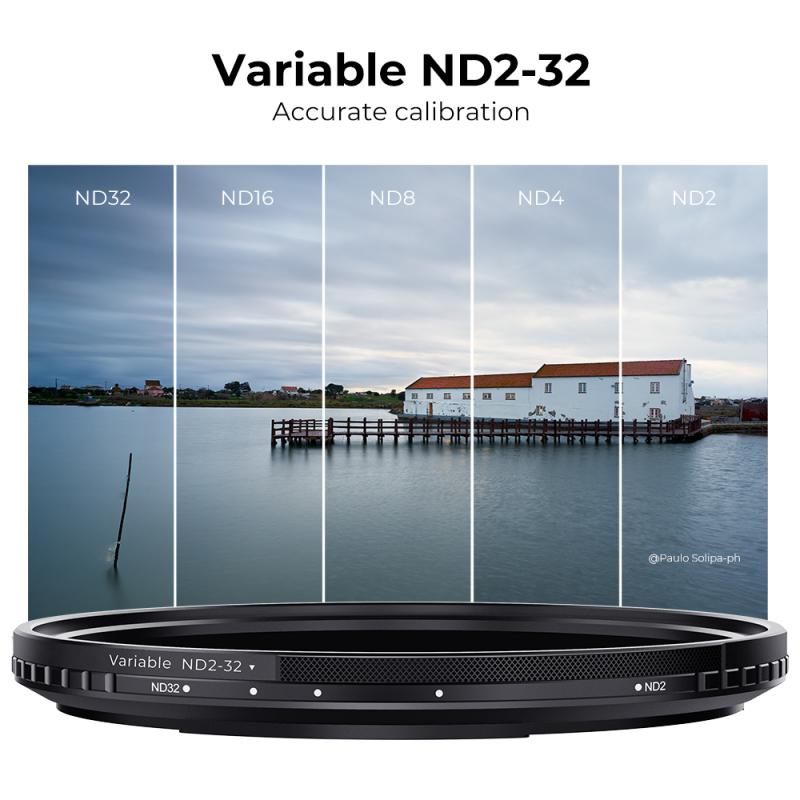
4、 How to Choose the Right ND Filter for Your Needs
Gobe ND filters are indeed a popular choice among photographers and videographers. They are known for their high-quality construction and excellent optical performance. Gobe offers a wide range of ND filters, including various densities and sizes, to suit different shooting conditions and creative needs.
One of the key factors to consider when choosing an ND filter is the density or strength of the filter. Gobe provides a range of densities, from light ND2 filters to heavy ND1000 filters, allowing you to achieve the desired level of light reduction. This flexibility is particularly useful for long exposure photography or when shooting in bright conditions.
Another important aspect to consider is the filter's optical quality. Gobe ND filters are made from high-quality optical glass, which ensures minimal color cast and distortion. This allows for accurate color reproduction and sharpness in your images.
Additionally, Gobe is committed to sustainability and environmental conservation. They are a member of 1% for the Planet, meaning that 1% of their sales go towards environmental causes. This commitment to sustainability is an added bonus for photographers who value eco-friendly products.
When choosing the right ND filter for your needs, it is important to consider factors such as the desired light reduction, filter size compatibility with your lenses, and the overall quality of the filter. Gobe ND filters offer a reliable and high-quality option that is worth considering for your photography or videography needs.
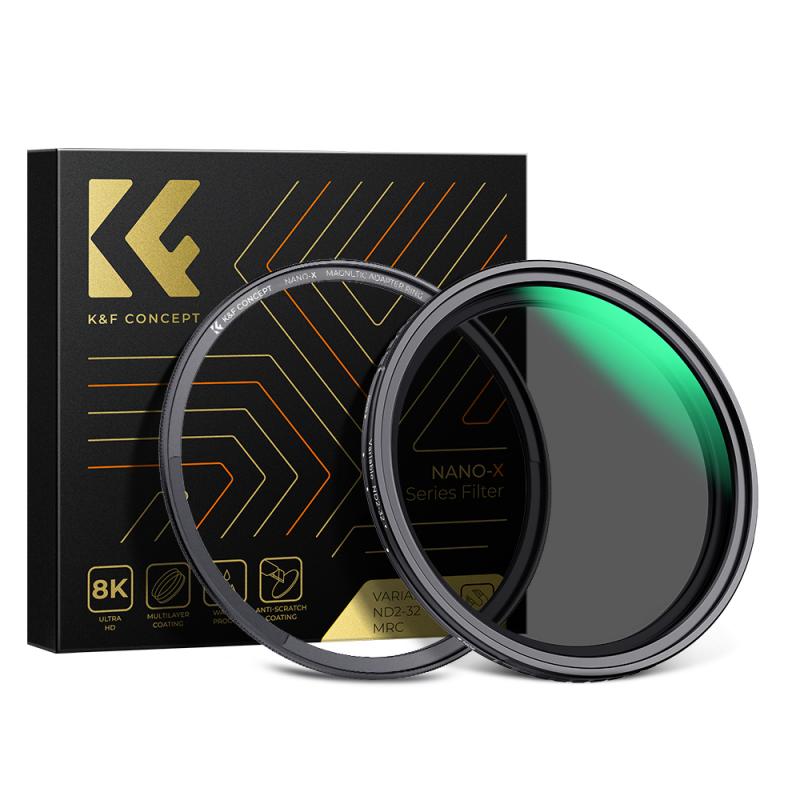


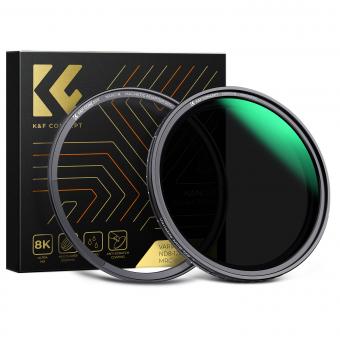
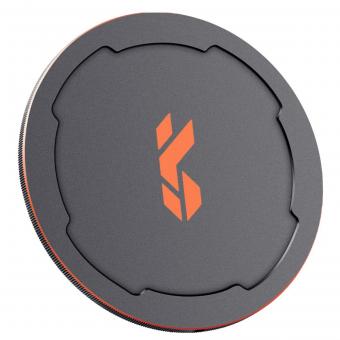
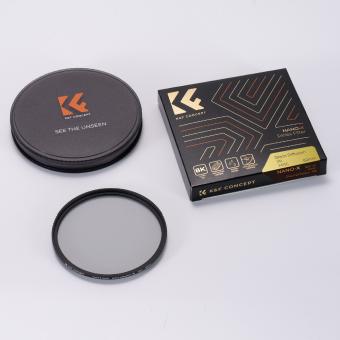
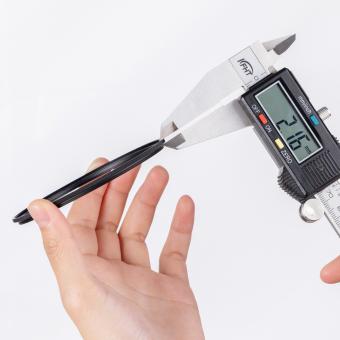
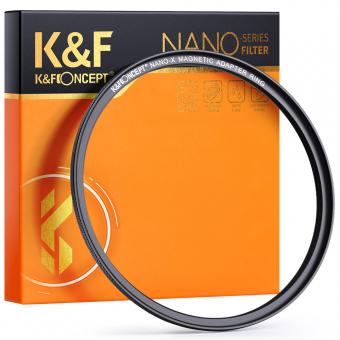
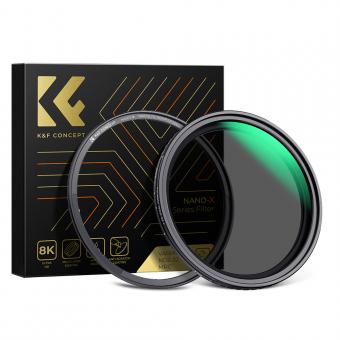
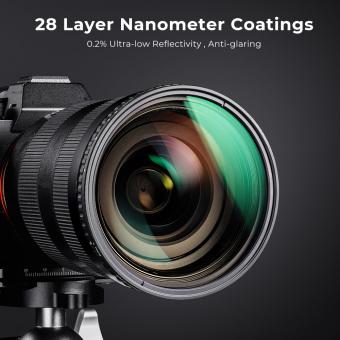

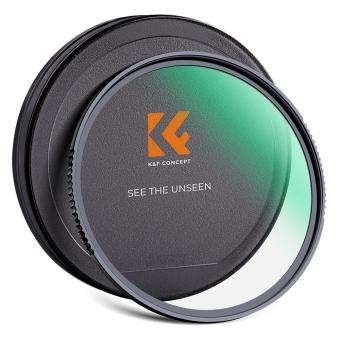
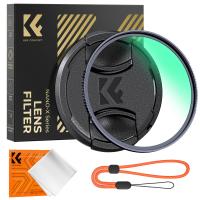
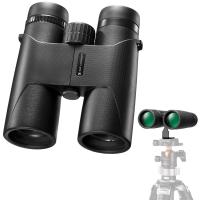



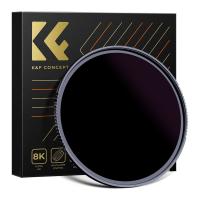
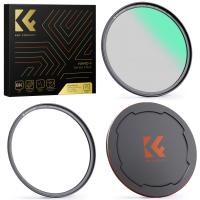
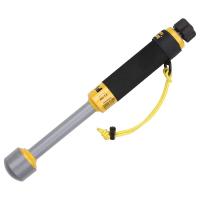
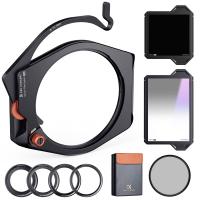
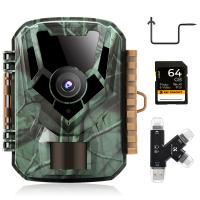
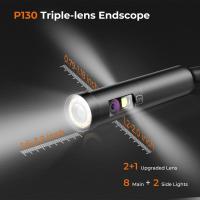
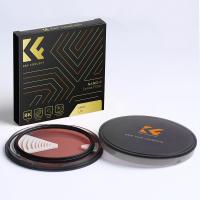


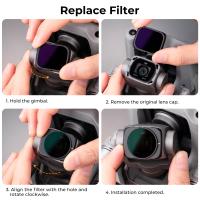
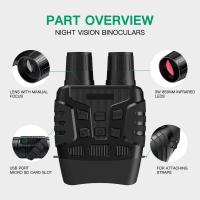
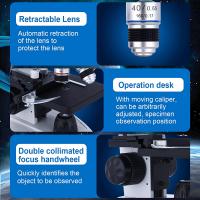
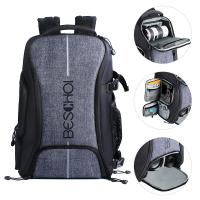
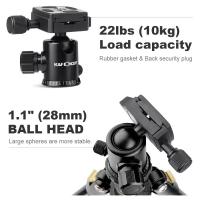
There are no comments for this blog.